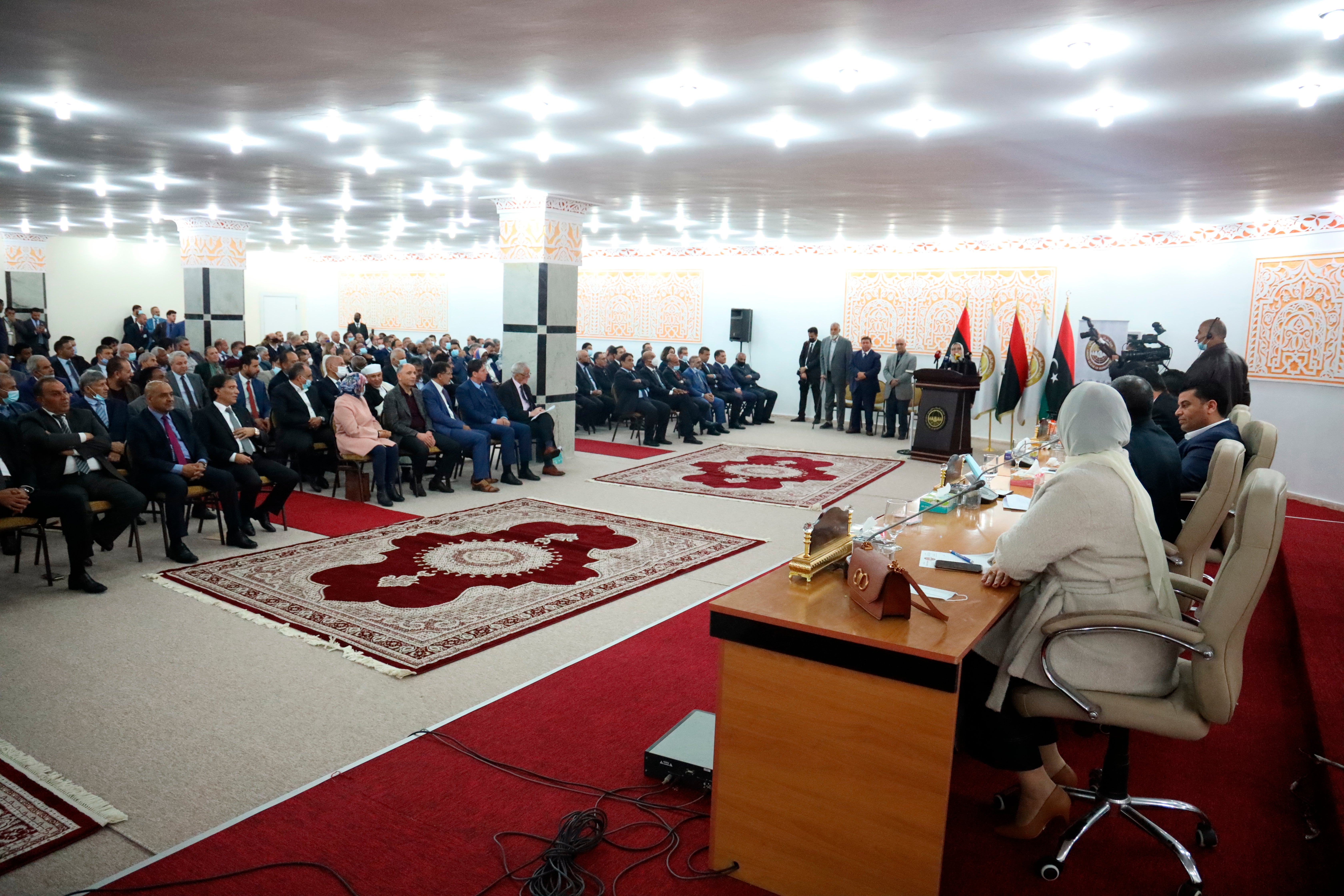Libya interim gov't sworn in, replaces rival administrations
Libya has sworn in an interim government to replace the country's two rival administrations and lead the war-torn North African nation through elections later this year

Your support helps us to tell the story
From reproductive rights to climate change to Big Tech, The Independent is on the ground when the story is developing. Whether it's investigating the financials of Elon Musk's pro-Trump PAC or producing our latest documentary, 'The A Word', which shines a light on the American women fighting for reproductive rights, we know how important it is to parse out the facts from the messaging.
At such a critical moment in US history, we need reporters on the ground. Your donation allows us to keep sending journalists to speak to both sides of the story.
The Independent is trusted by Americans across the entire political spectrum. And unlike many other quality news outlets, we choose not to lock Americans out of our reporting and analysis with paywalls. We believe quality journalism should be available to everyone, paid for by those who can afford it.
Your support makes all the difference.Libya on Monday swore in a new, interim government to replace the country’s rival administrations and lead the war-torn North African nation through elections later this year.
Prime Minister Abdul Hamid Dbeibah and his Cabinet were sworn in before the House of Representatives in the eastern city of Tobruk, which is controlled by forces loyal to military commander Khalifa Hifter.
The ceremony came after lawmakers last week endorsed Dbeibah’s government amid international pressure on Libya’s stockholders to implement a U.N.-brokered roadmap that set Dec. 24 as the date for general elections in the oil-rich country.
Dbeibah, a powerful businessman from the western city of Misrata was appointed last month to lead the executive branch of an interim government, which also includes a three-member Presidential Council, chaired by Mohammad Younes Menfi, a Libyan diplomat from the country’s east.
Dbeibah's Cabinet includes 33 ministers and two deputy prime ministers who he said are representative of Libya’s different geographic areas and social segments.
The parliament’s endorsement came amid corruption allegations at meetings of a U.N.-led political process that appointed the interim government. Dbeibah denied the allegations and called on the U.N. to reveal conclusions of its investigations.
Libya was plunged into chaos following a NATO-backed uprising in 2011 that toppled and later killed long-time dictator Moammar Gadhafi. The country has in recent years been split between rival east- and west-based administrations, each backed by armed groups and foreign governments.